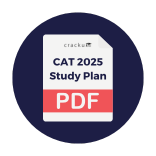Analyse the following passage and provide appropriate answers for questions that follow.
For private goods, competitive markets ensure efficiency despite the decentralized nature of the information about individual’s tastes and firm technologies. Implicitly, market competition solved adverse selection problems and the fixed - price contracts associated with exogenous prices solve moral hazard problems. However, markets fail for pure public goods and public intervention is thus needed. In this case, the mechanisms used for those collective decisions must solve the incentive problem of acquiring the private information that agents have about their references for public goods. Voting mechanisms are particular incentive mechanisms without any monetary transfers for which the same question of strategic voting, i.e., not voting according to the true preferences, can be raised. For private goods, increasing returns to scale create a situation of natural monopoly far away from the world of competitive markets. When the monopoly has private information about its cost or demand, its regulation by a regulatory commission becomes a principal - agent problem.
(Note: Public goods are those in which individuals cannot be excluded from use and where use by one individual does not reduce availability to others, while an individual can be excluded in case of private goods.)
Read the following statement carefully:
Statement 1: In India factories dump their waste in the nearby water bodies.
Statement 2: Government is thinking of granting tax benefits to factories which adopt eco - friendly practices.
Which of the following options best captures the relationships between Statement 1 and Statement 2?
Water bodies are public good and contaminating them is a market failure.
Statement 2 is a remedy of the problem mentioned in the first statement.
Hence, option C is the correct answer.
Create a FREE account and get:
- All Quant Formulas and shortcuts PDF
- 15 XAT previous papers with solutions PDF
- XAT Trial Classes for FREE




